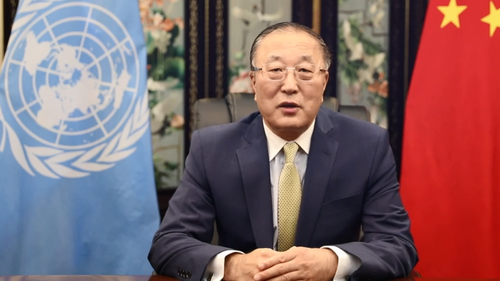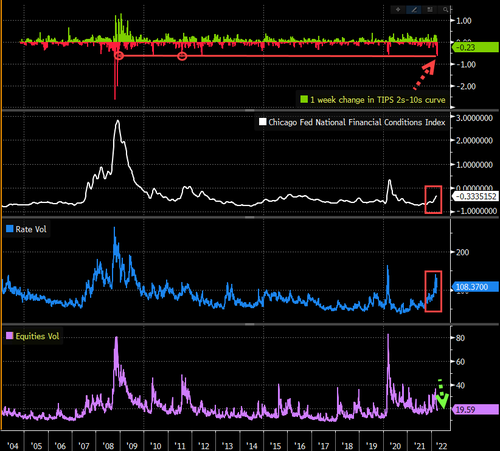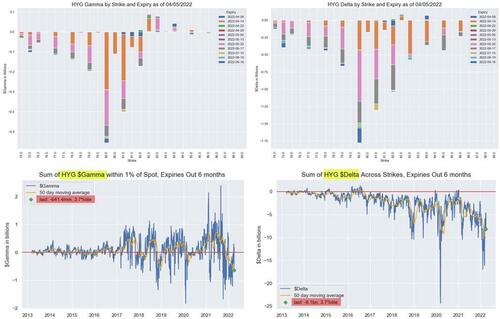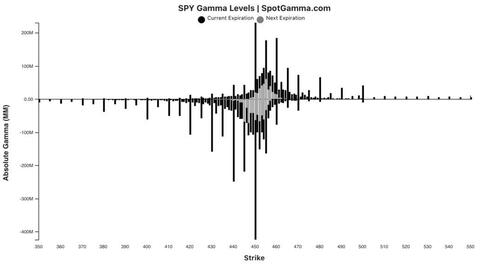Oklahoma has passed a near-total ban on abortion. The bill will make abortion illegal at all stages of pregnancy, “except to save the life of a pregnant woman in a medical emergency.” Not only that, but performing an elective abortion will become a felony crime, punishable by up to 10 years in prison and $100,000 fine.
On Tuesday, the measure—Senate Bill 612—cleared the Oklahoma House by a vote of 70 to 14. It had already passed the state’s Senate last year, in a 38–9 vote.
The ban now heads to Oklahoma’s Republican Gov. Kevin Stitt, who is expected to sign.
Rep. Jim Olsen (R–Roland), the author of the bill, said it cleared the House with no debate. “Nobody debated and nobody asked any questions. I was actually kind of shocked.”
Planned Parenthood Great Plains is already planning a legal challenge. “This ban is more in line with the traditional bans that have been blocked in the past,” Emily Wales, interim president and chief executive of the organization, told The New York Times. “So we are fairly confident that, as long as Roe remains the law of the land, there is a path to blocking this.”
The Oklahoma ban is out of step with recent trends in Republican-led abortion restrictions.
With the Supreme Court set to take up a Mississippi case (Dobbs v. Jackson Women’s Health Organization) concerning a ban on abortion at 15 weeks pregnancy, some states—including Florida—have been passing or considering similar 15-week abortion bans, under the expectation that the Court may allow Mississippi’s law to stand (while still barring more restrictive laws). Others—buoyed by the success of Texas’ novel abortion restriction—have been attempting bans similar to that law, which tasks citizens with enforcement through civil lawsuits. A Texas-style law passed the Oklahoma House of Representatives in March, and copycat measures were also introduced in Missouri and Tennessee and passed in Idaho.
A new poll from the Wall Street Journal suggests 15-week bans may be favored by a majority of Americans, but total bans on abortion are not:
With lawmakers in several states pushing forward with bills that would ban abortion after 15 weeks of pregnancy, 48% of voters said they would strongly or somewhat favor such restrictions, with exemptions to protect the health of the mother, while 43% were in opposition.
At the same time, the survey found a majority of voters say abortion should be legal in all or most cases, underscoring the complicated views many Americans hold on the issue.
Similarly confused findings were present in a 2021 Marquette poll on the issue.
Recent research on the Texas ban found that its effect was limited by residents taking abortion pills they had obtained in the mail or traveling to nearby states—including Oklahoma—to get abortions.
“If allowed to take effect, S.B. 612 would be devastating for both Oklahomans and Texans who continue to seek care in Oklahoma,” said Tamya Cox-Touré, executive director of the American Civil Liberties Union of Oklahoma, in a statement. “Nearly half of the patients Oklahoma providers are currently seeing are medical refugees from Texas. Now, Oklahomans could face a future where they would have no place left in their state to go to seek this basic health care.”
FREE MINDS
Panhandling is free speech. The American Civil Liberties Union (ACLU) is challenging anti-panhandling laws in Iowa. “Laws like this that outlaw panhandling are unconstitutional because they wrongly block individuals’ free speech rights,” said ACLU of Iowa attorney Shefali Aurora. “Such ordinances are also ineffective because, by criminalizing poverty, all they do is drive people further into homelessness.”
FREE MARKETS
The Biden administration is considering yet another extension of its student loan repayment moratorium. The pause was put in place (allegedly) to help with financial hardships related to COVID-19. Now, more than two years into the pandemic, it’s still in place and set to be extended again, sources told Politico:
The White House plans to once again extend the moratorium on federal student loan payments through the end of August, according to multiple people familiar with the matter, including an administration official.
The announcement, expected on Wednesday, comes as the current pause on payments was set to expire May 1, potentially impacting more than 40 million Americans. The new August 31 extension, however, is considerably shorter than what many Democrats have been requesting. It also tees up another fight over the relief just months before the midterm elections.
FOLLOWUP
Florida has already spent around $700,000 defending its blatantly unconstitutional social media law in court. “And that’s even before the appeal is heard — meaning that it’s quite likely that Florida will set over a million dollars of taxpayer money on fire in an attempt to violate the 1st Amendment rights of internet websites,” writes Mike Masnick at Techdirt.
The measure was signed into law last May and bans large social media providers from deplatforming political candidates. Last summer, the U.S. District Court for the Northern District of Florida ruled that it violated the First Amendment. “The legislation compels providers to host speech that violates their standards—speech they otherwise would not host—and forbids providers from speaking as they otherwise would,” noted the judge in his decision.
“As states around the country continue to pass these kinds of laws, it makes me wonder at what point supposedly ‘small government’ elected officials who are ‘concerned about the budget’ will realize that wasting taxpayer funds on a quixotic attack on the 1st Amendment just isn’t worth it?” asks Masnick. “Or do they not care, since it’s not their money that’s being spent?”
QUICK HITS
• A new study published in the New England Journal of Medicine suggests a fourth dose of the Pfizer COVID-19 vaccine may produce only fleeting benefits.
• When will Democrats get serious about repealing pot prohibition?
• “A nonprofit association that promotes social responsibility among corporations has concluded in a new report that Meta’s planned expansion of strong encryption to its Messenger and Instagram services will do more good than harm for human rights,” reports The Washington Post.
• Rhode Island’s Senate held hearings yesterday on two bills to decriminalize prostitution.
• Atlanta is thwarting Airbnbs and other short-term rentals.
• A Missouri man will be freed from incarceration after being wrongly convicted of a 2003 murder and sentenced to life in prison.
• South Dakota Republican Gov. Kristi Noem’s administration denied a protest permit to people urging for more exceptions to COVID-19 vaccine mandates. The state must now pay the group $37,503, after a judge found the state violated their First Amendment rights.
• Kentucky will now require more proof before involuntarily committing people for drug treatment.
The post Oklahoma Votes To Criminalize Abortion appeared first on Reason.com.
from Latest https://ift.tt/wV9c2AE
via IFTTT








